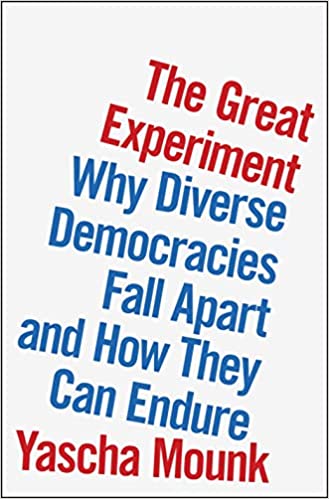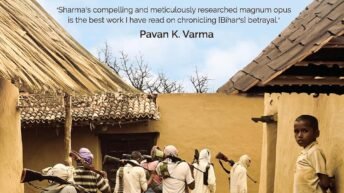|
Listen to article
Getting your Trinity Audio player ready...
|

Are democracies falling apart? Is there a “democratic recession” growing in the world as chronicled by the renowned American political sociologist Larry Diamond? A narrative to this effect has been raging among the liberal intelligentsia ever since Donald Trump’s election to the White House. More and more liberal voices can be heard bemoaning over the perceived ‘growing democratic deficit’ in the world.
Pessimism about democracy has been as old as the democracies themselves. Benjamin Franklin described democracy as “two wolves and a lamb voting on what to have for lunch”. Bertrand Russel’s definition for a democracy was where “the fools have a right to vote” and a dictatorship where “the fools have a right to rule”.
Yet democracies survived. Their numbers have gone up since after the Second World War. Not all of them are perfect. There are authoritarian democracies that Fareed Zakaria, in his book “The Future of Freedom”, called as “illiberal democracies”.
The Liberal West’s unease over the perceived democratic deficit continues. A new book by Yascha Mounk, a professor of Practice of International Affairs at the Washington DC based John Hopkins University, titled “The Great Experiment – Why Diverse Democracies Fall Apart and How They Can Endure” focuses on this perception that “in many parts of the world, the threat of structured anarchy remains very much alive today”.
Yascha’s key proposition in this book was that for many societies, “diversity has turned out to be a stumbling block rather than a strength”. He believes that “diversity often leads to conflict”. In human history, “ascriptive identities like race or religion played a decisive role in most heinous crimes”, he avers. But then, he also admits that “a generalized hostility to any form of collective identity is misguided”, and proposes that rather than attempting to overcome “groupish instinct”, we should try to build on its “enormous potential for good”.
The debate over democratic recession began with the rise of nationalist parties to power in various parts of the western world. Wokes and radical liberals are uncomfortable with the return of ‘national identity discourse’ in many of those countries. Nationalism, based on cultural, civilizational and historical group identity, was discarded by the western liberal elites after the experience of Hitler and Mussolini in the last century in favour of what they described as “civic patriotism”. Founding of the American nation on “an idea”, that was about the commitment to “moral liberty, political self-determination, and the principles enshrined in the Declaration of Independence”, was touted as the panacea.
Has that idea succeeded in building a united American nation? Two centuries ago, in the early 19th century itself, American abolitionist and reformer Frederick Douglass had bitterly rejected the American Declaration of Independence of July 4, 1776, saying “This Fourth of July is yours, not mine. You may rejoice, I must mourn”. Many in the US continue to mourn that failure. Despite its lofty “idea”, the American society has failed to build a coherent narrative for its national identity. As the eminent political scientist Samuel Huntington wrote in 2009, “Unlike past immigrant groups, Mexicans and other Latinos have not assimilated into mainstream US culture, forming instead their own political and linguistic enclaves—from Los Angeles to Miami—and rejecting the Anglo-Protestant values that built the American dream.”
“An overwhelming focus on the importance of ethnic identity and the irreconcilable conflicts between whites and “people of color” is quickly becoming part of the ruling ideology of the American elite”, Yascha rues.
Yascha takes all these factors into account in his book that makes his thesis objective. There is no denying that the nature of democracies in the world is undergoing a major shift. The return of nationalism is leading to the rise of strong-man democracies in some countries. But then, neither are the citizens of those countries “lambs”, nor are the rulers “fools”. Democratic traditions have gotten entrenched firmly well in many societies.
Still, Yascha’s concerns, and warnings are worth pondering over. Demographic imbalances created by large-scale immigration – both legal and illegal – and other reasons are leading to conflicts in many countries. A new breed of “conflict entrepreneurs” is exploiting this by projecting theories like “demography is destiny”, and encouraging “majorities to rise up for their interests before it is too late”. On the other hand, wokes and radical liberals, who “once defended the need for universalism”, now want to instill a “stronger sense of ethnic or religious identity” in the “disadvantaged groups”, thus championing a new kind of “identity politics”. This situation could lead to the formation of “increasingly rigid and hostile groups”, Yascha warns.
What should the states do? Yascha suggests that “philosophical liberalism”, a tradition of the state protecting “the liberties of all its citizens in some core ways” as an answer. Regular elections, separation of powers, and individual rights are some of the measures that “grant the citizens of diverse democracies key protections against persecution”, he opines.
What about the people? Can “patriotism be a force for good?” As George Orwell pointed out, the liberal intellectuals mechanically write off “the energy that actually shapes the world”, which springs from the “emotions of racial pride, leader worship, religious belief, love of war”, as an anachronism.
Patriotism is a “half-wild beast”, Yascha observes, especially if “the worst people are left to stoke its most violent instincts”. But, unlike the wokes and radicals, Yascha doesn’t discard patriotism altogether as an evil. On the contrary, he ventures to go beyond the notion of “civic patriotism” and suggests that “to develop an account of inclusive patriotism that fully expresses the devotion that most citizens feel for their nations, we need to add another dimension: cultural patriotism”.
The central concern of The Great Experiment was about the challenge of integrating diverse minorities into a national mainstream. It agrees that the process need not reject the role of the Leitkultur, or guiding culture, but build a system of “mutual respect” of diverse cultures.
Yascha is a fine scholar with balanced views. That, together with his rigorous research, makes this book quite readable and thought-provoking. What differentiates this book from the deluge of despondency-filled books on the similar theme was his optimism that “our countries are capable of integrating newcomers, of building a common bond with people who do not share the same race or religion, and of embracing new national narratives”.
Yascha Mounk’s book deals largely with the experience of the nation-states in the West. Yascha believes that a democracy “that grants true equality to a highly diverse set of citizens” has been absent “in the long annals of human history”. However, despite its flaws, India has presented that virtue of a diverse democracy, not falling apart, but managing to uphold democratic pluralism and inclusive justice.






Really an interesting book review that covered various eminent persons views on democracy. Yascha Mounk’s book is useful to form a political opinion or word-view of things going on at present in all democracies.
In India pluralism as a democratic philosophy has evolved over a period of India and has become the bedrock of the Indian political system. It has recognised and affirmed ‘diversity’ within Indian society and permitted the peaceful co-existence of different interests, convictions, and lifestyles.
It’s indeed true that in a democracy the people decide their own fate. To maintain the democratic fabric much lies on the public. The book gives an insight into the functioning of democracy around the World. In a democracy, the person/s manning the system have to be firm, clear and meet the expectations of the voters. The voter in turn has a responsibility to ensure stable governance by choosing the appropriate persons to maneuver the system. In the book, the niceties of the democratic governance has been highlighted with reference to large number of groups based on religion tribe and race prevalent all over the world. Ultimately the book has brought out that the respect for different lifestyles, beliefs and practices is the mantra to ensure the successful functioning of a Democratic governance. A book that touches all aspects of democracy.